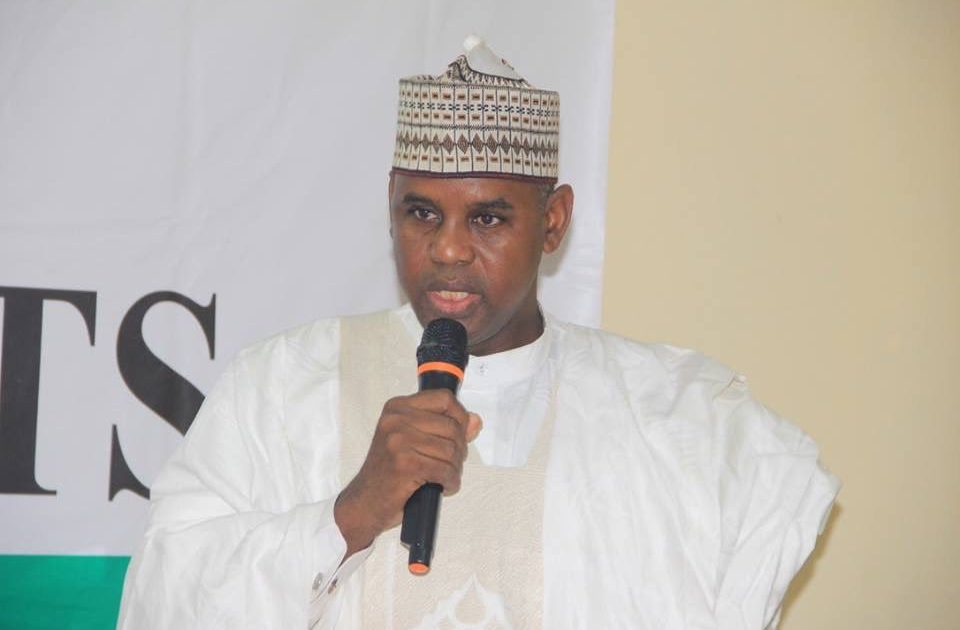The Federal Roads Maintenance Agency (FERMA), the entity responsible for the upkeep and repair of Nigeria’s extensive federal road network, is grappling with a severe funding deficit that threatens its ability to effectively execute its mandate. The Minister of State for Works, Mohammad Goronyo, voiced his concerns about the inadequacy of the agency’s budgetary allocation, emphasizing the crucial role FERMA plays in maintaining critical infrastructure and facilitating the smooth movement of people and goods across the country. He highlighted the immense scale of the task before the agency and the need for a significantly larger budget to adequately address the nation’s road maintenance needs. Goronyo stressed that FERMA requires over N700 billion annually to effectively maintain the federal road network, a figure drastically higher than the agency’s current budgetary allocation.
The agency’s proposed budget for the 2025 fiscal year stands at N64.88 billion, a sum substantially lower than the N77 billion proposed for 2024 and a fraction of the estimated N700 billion required for optimal road maintenance. This budget encompasses N4.9 billion for personnel costs, N33.468 billion for overhead expenses, and N26.487 billion for capital projects. The allocation prioritizes major trunk A roads across Nigeria’s six geopolitical zones, aligning with the President’s Renewed Hope Agenda, which focuses on economic recovery and development. While the 2024 budget initially allocated N96.7 billion to FERMA, later increased to N103.3 billion by the President, only N41.282 billion was ultimately released to the agency. This underscores the persistent gap between allocated funds and the actual resources made available for road maintenance.
The Minister of State for Works underscored FERMA’s commitment to transparency and accountability, emphasizing the agency’s adoption of data-driven decision-making and regular community engagement in its road maintenance planning processes. He revealed ongoing efforts, in collaboration with relevant committees and stakeholders, to explore strategies for alleviating the financial burden on the Federal Government for road asset maintenance. This includes developing, modifying, and redefining key policies aimed at generating resources for the agency. However, the minister lamented the persistent inadequacy of funding, echoing observations from a March 7, 2024, oversight visit by the committee which confirmed the stark mismatch between FERMA’s budgetary allocation and the immense scale of the road maintenance challenge.
The chairman of the Senate Committee on FERMA, Hussaini Babangida, expressed his disapproval of the prevailing practice of prioritizing the construction of new roads without adequate provision for the maintenance of existing ones. He highlighted the committee’s surprise at the proposed budgetary allocation to FERMA, questioning the focus on new road construction at the expense of maintaining the existing network. He underscored the importance of roads as enablers of growth and development, advocating for increased dialogue and collaboration among stakeholders to identify sustainable solutions to the chronic underfunding of road maintenance. This calls for a paradigm shift in infrastructure development, emphasizing the crucial role of maintaining existing assets alongside the construction of new ones.
The substantial disparity between FERMA’s budgetary allocation and its actual funding needs underscores a critical challenge in Nigeria’s infrastructure development. This funding shortfall not only hinders the agency’s ability to effectively maintain the existing road network but also poses a significant threat to the country’s economic growth and development. Adequate road maintenance is essential for facilitating trade, transportation, and access to essential services, making it a crucial component of a thriving economy. The current underfunding of FERMA thus represents a significant impediment to Nigeria’s progress.
Addressing this funding gap requires a multi-pronged approach, including exploring innovative funding mechanisms, prioritizing road maintenance in national budget allocations, and enhancing transparency and accountability in the management of allocated funds. Furthermore, a shift in focus towards preventive maintenance, which is more cost-effective in the long run compared to reactive repairs, is crucial. By investing adequately in road maintenance, Nigeria can safeguard its existing infrastructure, promote economic growth, and enhance the quality of life for its citizens. The call for increased funding for FERMA is not merely a request for more resources; it is an investment in the future of Nigeria’s development and prosperity.


